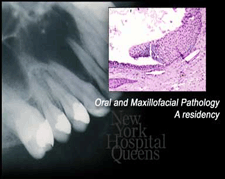المقالات
Papilloma

Papillomas are slow-growing, soft lesions that are sometimes caused by a virus. They can also spread through direct contact with the mouth's lining (the mucosa). Papillomas can occur at any age, and can be found anywhere on the skin but typically exist on the tongue, lips, gums, corners of the mouth, the inside of the lips or cheeks, and roof of the mouth, including the soft palate and throat. They originate from the epithelium, which is the outer layer of tissue that lines the inside of the mouth.
Papillomas are knob-like or elongated finger-like growths that usually appear to be attached by a stalk of tissue; however, larger growths can be broad and flattened. Frequently, papillomas consist of multiple frond-like growths that we can easily examine with a dental explorer or an air syringe. They are pink or white, and are usually under one centimeter in diameter. Clusters of papillomas may merge to form large lesions.
likelihood of injury to the tissue such as ulceration, soreness, pain, and infection. Papillomas very rarely heal or disappear on their own.
